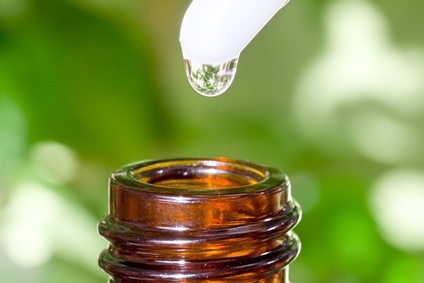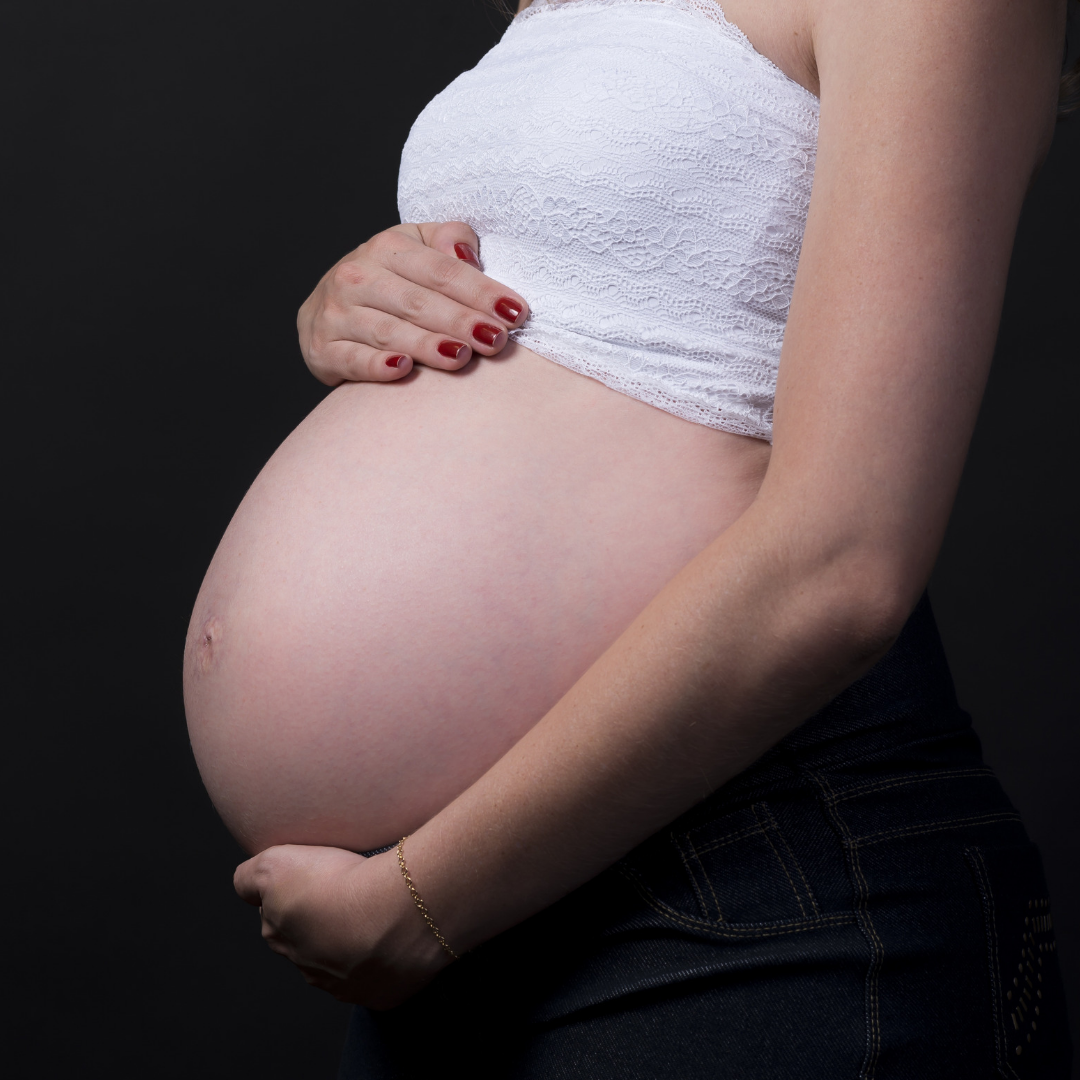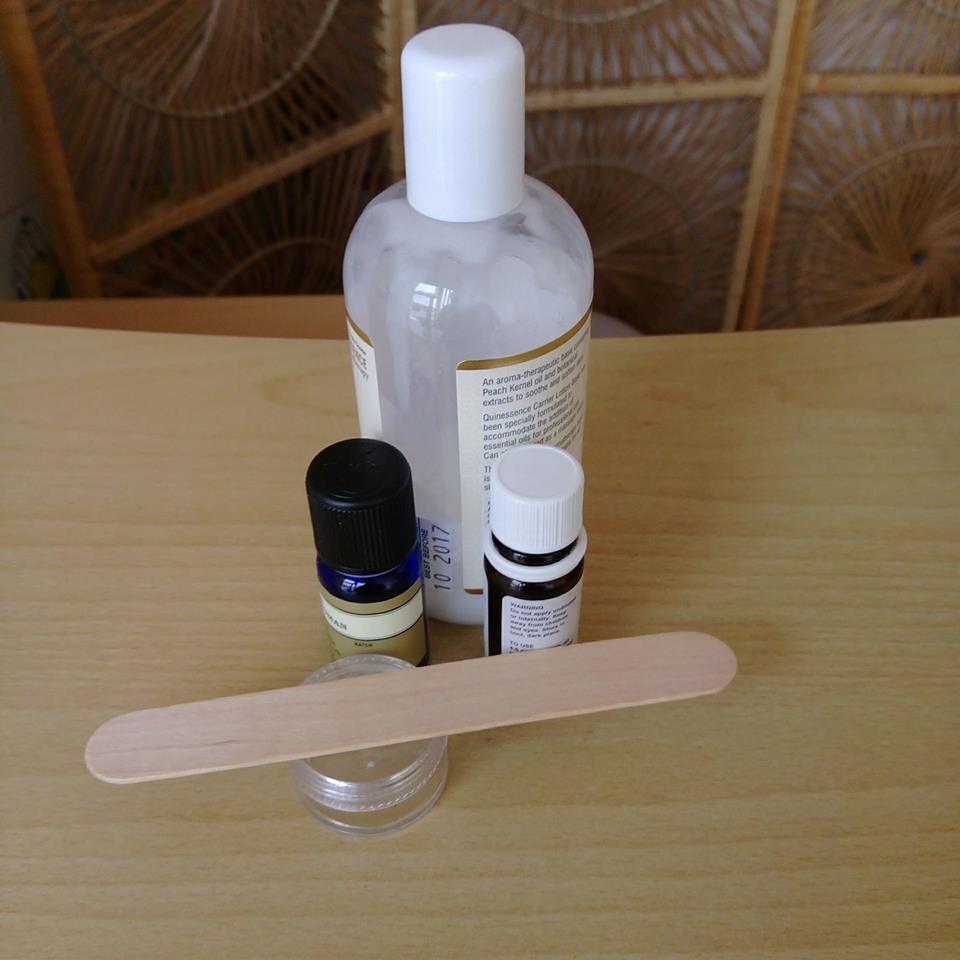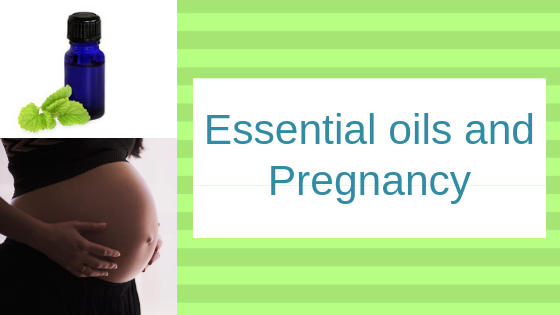Recently, I’ve been contacted by a therapist who is concerned to see a course encouraging essential oils for pregnant women. The person advertising the course has a health background but is not an aromatherapist and is part of a multi-level-marketing company. Having been sent the link I tried to look at the information, but you have to sign up to their free webinar – I tried, but unfortunately their link hasn’t been sent to me! Without knowing what information they’re promoting, I can’t comment on whether it is safe or not, however it did make me aware that people may not be aware of things to consider in pregnancy.
Essential oils are smaller molecules than the main carrier oils used for massage. This means they can absorb into the skin easier and will enter the bloodstream if left for long enough.  During a massage, some essential oils absorb more quickly than others, so depending on the chemicals you may have oils entering your body for a few hours. When applied to the skin though, a lot will actually evaporate and also go onto the hand of the person applying it, so the eventual dilution isn’t that strong. This means if someone is recommending a low dilution oil in carrier oil to be applied to the skin, the biggest immediate benefit will be through inhalation. Later, a gentler effect will be the absorption into the bloodstream. A qualified aromatherapist will know essential oils which are of least risk in pregnancy and adjust the dilution accordingly. An aromatherapist knows the essential oil chemical components, once in the bloodstream, can pass through the placenta to your baby. In the dilutions talked above this will be miniscule and no worse than if you’ve been using synthetic fragrances or the other environmental pollutants we’re exposed to.
During a massage, some essential oils absorb more quickly than others, so depending on the chemicals you may have oils entering your body for a few hours. When applied to the skin though, a lot will actually evaporate and also go onto the hand of the person applying it, so the eventual dilution isn’t that strong. This means if someone is recommending a low dilution oil in carrier oil to be applied to the skin, the biggest immediate benefit will be through inhalation. Later, a gentler effect will be the absorption into the bloodstream. A qualified aromatherapist will know essential oils which are of least risk in pregnancy and adjust the dilution accordingly. An aromatherapist knows the essential oil chemical components, once in the bloodstream, can pass through the placenta to your baby. In the dilutions talked above this will be miniscule and no worse than if you’ve been using synthetic fragrances or the other environmental pollutants we’re exposed to.
Why do we need to think about how we use essential oils?
 Issues occur when we’re using essential oils which aren’t suitable for pregnancy, they’re used on a daily basis, or in higher dilutions. Many essential oils haven’t been tested in pregnancy due to ethical concerns around possibly damaging a foetus. In some instances there may be a reason why we want to use them. An aromatherapist is going to weigh up the risks with the benefits, aim to achieve the best outcome with the lowest dilution, and use the best method of application. During pregnancy, we really don’t want to be looking at high dilutions and if we’re encouraging inhalation we need to be mindful this can enter the bloodstream at quite a high dilution, depending on the ventilation, room space etc!
Issues occur when we’re using essential oils which aren’t suitable for pregnancy, they’re used on a daily basis, or in higher dilutions. Many essential oils haven’t been tested in pregnancy due to ethical concerns around possibly damaging a foetus. In some instances there may be a reason why we want to use them. An aromatherapist is going to weigh up the risks with the benefits, aim to achieve the best outcome with the lowest dilution, and use the best method of application. During pregnancy, we really don’t want to be looking at high dilutions and if we’re encouraging inhalation we need to be mindful this can enter the bloodstream at quite a high dilution, depending on the ventilation, room space etc!
Things to ask yourself:
- Why are you wanting to use the oil? If it’s a one off application or you’re going for a massage with a trained aromatherapist, then there are few concerns. If you’re having trouble sleeping and want to diffuse an oil, then this can be a good choice. If you’ve decided to use an essential oil because someone has said it’s a good idea, don’t do it and get advice
- Where have you received the information? If someone isn’t a trained aromatherapist, check and check again. They may have some knowledge, but if they do not have formal aromatherapy qualifications then their advice may not be sound or appropriate for you
- Is it generic advice or tailored to you? If it’s generic, then depending on your circumstances the advice may not be suitable. When you have a health condition it really is worth booking an appointment with a clinical aromatherapist who can check your medical history and produce a bespoke blend most suitable for you and your baby
- Are you planning to use an aromatherapy product on an ongoing basis? Why? Using aromatherapy products on a regular basis is where the risk can be increased, as the chemical components may be in your body for a longer period. There may be occasions when an aromatherapist may recommend regular use of a blend, but they will advise you why, what they are looking to achieve, and any cautions you should be aware of when you are using the blend. Under no circumstances is it appropriate for a pregnant woman to ingest an essential oil, as this has to be metabolised by the liver and will be passed on to the baby in a higher dilution
- Is the product you are using tailored for pregnant women? If it’s an aromatherapy product you have bought in the shop which advises it is suitable for pregnant women, then there is no concern. These have been tested and will be in a low dilution which has been assessed as suitable for retail sale. If you’re buying single essential oils with advice from the sales representative then be careful, as their knowledge will be based on what they have been told by their company
Using essential oils during your pregnancy can be a great way to support you and your unborn baby, but it needs a common-sense approach. Our bodies are exposed to chemicals every day, and personally I see essential oils as possible positive chemicals, however, they need to be respected. When we use essential oils  incorrectly they can cause issues, regardless of whether we’re pregnant. Do not listen to people who encourage you to use essential oils on a daily basis for no reason, or who are encouraging you to use lots of different oils. If you want to use essential oils in your pregnancy then do consider booking an appointment with a clinical aromatherapist, as during this time it’s important to seek professional advice so you can take good care of yourself and your baby
incorrectly they can cause issues, regardless of whether we’re pregnant. Do not listen to people who encourage you to use essential oils on a daily basis for no reason, or who are encouraging you to use lots of different oils. If you want to use essential oils in your pregnancy then do consider booking an appointment with a clinical aromatherapist, as during this time it’s important to seek professional advice so you can take good care of yourself and your baby

Louise is an holistic therapist who owns Therapy Centre, Bristol BS14 9HB, a clinic offering a range of holistic and beauty therapies. Louise offers reflexology, aromatherapy, holistic massage, Indian head massage, reiki, baby massage and story massage. She is a mum of two boys and when she is not working she enjoys getting outdoors with her family. For further information about Louise, visit louise-morgan.co.uk.

